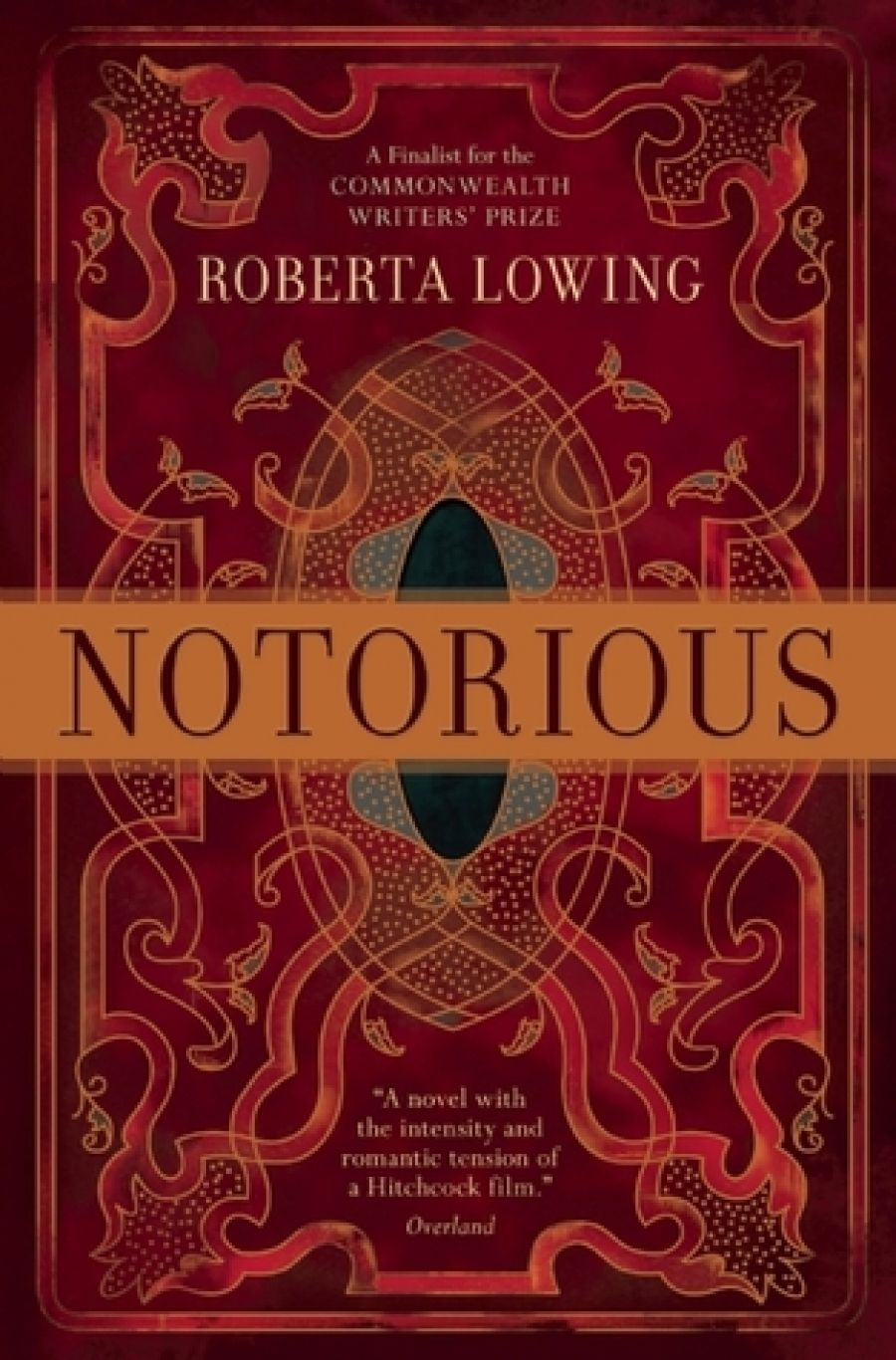
- Free Article: No
- Contents Category: Fiction
- Review Article: Yes
- Online Only: No
- Custom Highlight Text:
What’s not to love about Arthur Rimbaud? Having run away from his home in northern France, the outrageous and outrageously gifted teenage poet landed on the Paris doorstep of fellow poet Paul Verlaine in 1871. There, he co-opted the twenty-seven-year-old Symbolist into his artistic enterprise of ‘derangement of the senses’, which soon saw the pair embarking on a torrid affair that culminated in their fleeing to Brussels, where Verlaine shot Rimbaud (although not fatally) and was jailed.
- Book 1 Title: Notorious
- Book 1 Biblio: Allen & Unwin, $32.99 pb, 504 pp
- Book 1 Readings Link: booktopia.kh4ffx.net/0L7Q3
Australian poet Roberta Lowing has written a hefty, ambitious novel that has a mythical diary of Rimbaud’s African odyssey at its core. Poetry infuses the pages, and the ghost of Rimbaud hovers over the narrative, as do those of Emily Brontë, e.e. cummings, Paul Bowles and Michael Ondaatje’s The English Patient. If Notorious is, as one character notes, ‘about families’, it is also, in part, an examination of the power of poetry and obsession.
Opening in the present day, an Australian official code-named John Devlin has been assigned to extract information from an unnamed and severely injured woman who has emerged from the Moroccan desert and taken refuge at an asylum. The asylum administrator René Laforche is prone to gnomic utterances. There is also a self-flagellating nun, Sister Anthony, who says things such as, ‘We are like cactuses sending out shoots, placing our hard thorny side to the world.’ Gradually, it becomes clear that Devlin and the enigmatic woman share a troubled past that involves romance, drug addiction, murder and deception. A sinister CIA figure named Mitch lurks in the background.
From these promising scenes, Notorious whisks us back to Sicily, 1952. A young Polish man named Czeslaw Walenzska attempts to return Rimbaud’s diary to the poet’s French relations as penance for the heinous crimes the diary has enabled his father to commit. It is obvious that the diary contains information men and women are prepared to risk their lives for, but Czeslaw’s quest is halted when he encounters a village of sinister peasants who imprison him.
The narrative takes another leap forward to ten months prior to the action of the beginning of the novel proper. Devlin and the unnamed woman travel to Sicily to visit Czeslaw’s son Pietr, ostensibly for the woman to gather information that will prevent her from being jailed. Pietr lives in a glass mansion in the so-called Triangle of Hunger with his ‘war-eyed’ mother, Rosza, and it is here that the complicated web of relationships both past and present begins to draw together, and some of the character histories to unravel.
At more than 250 pages, this is the longest section of the novel, and the story drags somewhat. For much of Notorious, it is unclear what the stakes actually are, which makes it difficult to engage with the narrative. The language is dense. It is, of course, reasonable that a story so concerned with the effects – both ruinous and redemptive – of poetry should endeavour to infuse its sentences with a kind of lyricism, but, rather than bringing people or objects or landscapes into sharp relief, its overuse here only serves to obscure them. There are some startling images – a centipede ‘moving like a caravan of tiny, hunched, black-robed refugees’ – but the good work done, for example, by a lovely image of a bird’s cry climbing the morning air ‘like scales, rising and falling’, is undone by the sentence that follows, which tells us again that the ‘notes rise and fall. Plaintive as crystal across the quiet landscape’; instead of rain, ‘Diamond chips fall against the glass and, a moment later, the sound of hard blows’; dusk is likened to ‘dark, blue water [soaking] up the coarse sheets of cloud and mist and rain and sky’. This is perhaps a matter of taste, but what is less forgivable comes later, when the sense of a sentence is sacrificed completely, as when a character muses that ‘only a few degrees difference’ will change fire into ice.
The core idea linking secret desert routes with slave-trading and the CIA’s practice of rendition is wonderful, and the attempt to construct a modern thriller around the bones of a poetic tale of loss and obsession is admirable, but the overwriting makes it hard work at times. Added to this, central to its narrative drive are a number of well-known historical events; thus the withholding of characters’ personal histories is substituted for true dramatic tension.
Rimbaud’s diary at the heart of Notorious contains trade routes and maps of the African desert. It also features some good advice for writers: ‘There’s no point spinning elaborate scenarios about loneliness and rage and revenge. Just say it plainly.’ It is advice Roberta Lowing might heed next time around. Although there are some promising things about Notorious, too often its characters and narrative are not borne by the language but, rather, drown in it.


Comments powered by CComment